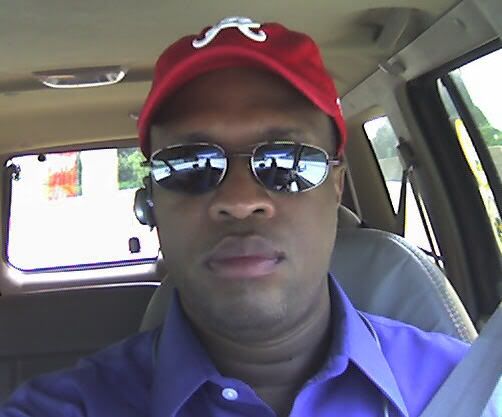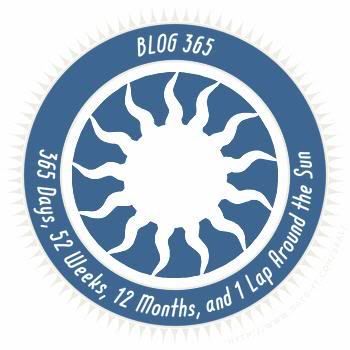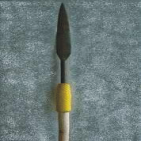 Federal law requires state electors to meet on the first Monday after the second Wednesday in December to cast votes for president and vice president. Electors are expected to vote for the winner in their state, but there is no federal law or Constitutional provision that requires them to do so, although some states have such requirements.
Federal law requires state electors to meet on the first Monday after the second Wednesday in December to cast votes for president and vice president. Electors are expected to vote for the winner in their state, but there is no federal law or Constitutional provision that requires them to do so, although some states have such requirements.
December 15th is the date when all of the Electoral College meets in the capitol of every state and the District of Columbia. The electors cast their ballots and the President of the United States is officially elected.
Based on the results from the November 4th election, the outcome was preordained, but it doesn't make the moment any less monumental.
Barack H. Obama is officially the President-Elect of the United States of America.
Entire Associated Press story:
RICHMOND, Va. (AP) — As 13 electors cast ballots Monday for the nation's first black president in the Confederacy's old Capitol, Henry Marsh emotionally recalled the smartest man he ever knew — a waiter, who couldn't get a better job because of his race.
"He waited tables for 30 years, six days a week, 12 hours a day, from 12 noon to 12 midnight, and he supported his family," Marsh, 75, a civil rights lawyer and state senator, said of his father as he fought back tears. "He suffered a lot. He went through a lot."
In all 50 states and the District of Columbia, the 538 electors performed a constitutional process to legally elect Democrat Barack Obama the 44th president.
More than 131 million voters cast ballots — the most ever in a presidential election. But Obama's election is not complete until Congress tallies the outcome of Monday's Electoral College vote at a joint session scheduled for Jan. 6.
Monday's voting was largely ceremonial, the results preordained by Obama's Nov. 4 victory over Republican Sen. John McCain. Obama won 365 electoral votes, to 173 for McCain. With every state reporting, all the electors had cast ballots in accordance with the popular votes in their states.
In many states, the formal, staid proceeding was touched with poignance, particularly among people old enough to recall a time when voting alone posed the risk of violence for black Americans.
The contrast at Virginia's Capitol, where the Confederate Congress met, was particularly striking.
Gov. Timothy M. Kaine noted in his speech that the 200-year-old Capitol was where lawmakers just 50 years ago orchestrated the state's formal defiance of federal school desegregation orders. But he also noted that it is where L. Douglas Wilder took his oath as the nation's first elected black governor in 1990.
"This temple of Democracy shines very brightly today," Kaine told a standing-room-only crowd attending what had always been a sparsely attended afterthought.
In Florida, state Sen. Frederica Wilson, 66, never thought she would see a black man elected president.
"White water fountains, colored water fountains. You couldn't sit at the lunch counter, go to the bank or get a hamburger," Wilson said after signing a document certifying that Obama got all 27 of her state's electors.
"The pain will always be there, but I think there's a realization that people have evolved," she said.
In North Carolina, 61-year-old Janice Cole said Monday's event was a joyous marker for black people to put old Dixie's trouble past behind them.
"Sen. Obama reminds us that only in America could this story be possible," Cole said.
As a pro football legend, Franco Harris signs his autograph countless thousands of times. But the signature he made as one of 21 Pennsylvania electors for Obama was the one the Pittsburgh Steelers great running back won't ever forget.
"That was special," the Pro Football Hall of Famer said. "This was the most valuable thing I've ever signed my name to."
In Augusta, Maine, the moment was freighted with emotion for Jill Duson, the first black mayor of Portland and chairwoman of Maine's four electors.
"Every time I think of it, I get a little misty eyed," Duson said. "I am undone by the election of Barack Obama and what it says to me as a black American, and his victory in the whitest state."
Sedrick Rawlins, a retired 81-year-old dentist from Manchester, Conn., traveled to Selma, Ala., in 1965 to help the Rev. Martin Luther King Jr., with the bloody march to Montgomery. The night Obama won the election, he said, he wept with joy. On Monday, he couldn't stop smiling.
"The election is one thing, but it's really official when they seal those ballots with wax and send them off," Rawlins said.
Colorado elector Wellington Webb, Denver's first and only black mayor, said the chance to cast an electoral vote for the first black president was the honor of a lifetime, one that would have made King proud.
"He would find the dream fulfilled," Webb said.
"He waited tables for 30 years, six days a week, 12 hours a day, from 12 noon to 12 midnight, and he supported his family," Marsh, 75, a civil rights lawyer and state senator, said of his father as he fought back tears. "He suffered a lot. He went through a lot."
In all 50 states and the District of Columbia, the 538 electors performed a constitutional process to legally elect Democrat Barack Obama the 44th president.
More than 131 million voters cast ballots — the most ever in a presidential election. But Obama's election is not complete until Congress tallies the outcome of Monday's Electoral College vote at a joint session scheduled for Jan. 6.
Monday's voting was largely ceremonial, the results preordained by Obama's Nov. 4 victory over Republican Sen. John McCain. Obama won 365 electoral votes, to 173 for McCain. With every state reporting, all the electors had cast ballots in accordance with the popular votes in their states.
In many states, the formal, staid proceeding was touched with poignance, particularly among people old enough to recall a time when voting alone posed the risk of violence for black Americans.
The contrast at Virginia's Capitol, where the Confederate Congress met, was particularly striking.
Gov. Timothy M. Kaine noted in his speech that the 200-year-old Capitol was where lawmakers just 50 years ago orchestrated the state's formal defiance of federal school desegregation orders. But he also noted that it is where L. Douglas Wilder took his oath as the nation's first elected black governor in 1990.
"This temple of Democracy shines very brightly today," Kaine told a standing-room-only crowd attending what had always been a sparsely attended afterthought.
In Florida, state Sen. Frederica Wilson, 66, never thought she would see a black man elected president.
"White water fountains, colored water fountains. You couldn't sit at the lunch counter, go to the bank or get a hamburger," Wilson said after signing a document certifying that Obama got all 27 of her state's electors.
"The pain will always be there, but I think there's a realization that people have evolved," she said.
In North Carolina, 61-year-old Janice Cole said Monday's event was a joyous marker for black people to put old Dixie's trouble past behind them.
"Sen. Obama reminds us that only in America could this story be possible," Cole said.
As a pro football legend, Franco Harris signs his autograph countless thousands of times. But the signature he made as one of 21 Pennsylvania electors for Obama was the one the Pittsburgh Steelers great running back won't ever forget.
"That was special," the Pro Football Hall of Famer said. "This was the most valuable thing I've ever signed my name to."
In Augusta, Maine, the moment was freighted with emotion for Jill Duson, the first black mayor of Portland and chairwoman of Maine's four electors.
"Every time I think of it, I get a little misty eyed," Duson said. "I am undone by the election of Barack Obama and what it says to me as a black American, and his victory in the whitest state."
Sedrick Rawlins, a retired 81-year-old dentist from Manchester, Conn., traveled to Selma, Ala., in 1965 to help the Rev. Martin Luther King Jr., with the bloody march to Montgomery. The night Obama won the election, he said, he wept with joy. On Monday, he couldn't stop smiling.
"The election is one thing, but it's really official when they seal those ballots with wax and send them off," Rawlins said.
Colorado elector Wellington Webb, Denver's first and only black mayor, said the chance to cast an electoral vote for the first black president was the honor of a lifetime, one that would have made King proud.
"He would find the dream fulfilled," Webb said.
~ ~ ~
Excerpts of Deseret News story out of Salt Lake City, Utah:
In Salt Lake City, members of Utah's Electoral College cast their five presidential votes for Sen. John McCain, R-Ariz.
The five Republican electors unanimously voted for McCain in the Supreme Court chambers at the state Capitol. The electors also unanimously voted for Alaska Gov. Sarah Palin for vice president.
While some states held large celebrations to mark the historic occasion of electing the nation's first black president, Utah's ceremony attracted only about two dozen observers, most of whom were news reporters or staff in the Lieutenant Governor's Office, which administers elections.
The entire ceremony took about 10 minutes and President-elect Obama was not mentioned once.
McCain was heavily favored to win Utah's five electoral votes after winning the Republican nomination. He won the popular vote in state in November with 62 percent of the vote.
In Salt Lake City, members of Utah's Electoral College cast their five presidential votes for Sen. John McCain, R-Ariz.
The five Republican electors unanimously voted for McCain in the Supreme Court chambers at the state Capitol. The electors also unanimously voted for Alaska Gov. Sarah Palin for vice president.
While some states held large celebrations to mark the historic occasion of electing the nation's first black president, Utah's ceremony attracted only about two dozen observers, most of whom were news reporters or staff in the Lieutenant Governor's Office, which administers elections.
The entire ceremony took about 10 minutes and President-elect Obama was not mentioned once.
McCain was heavily favored to win Utah's five electoral votes after winning the Republican nomination. He won the popular vote in state in November with 62 percent of the vote.
~ ~ ~
plez sez:
God Bless Barack Obama.
God Bless the United States of America.
~ ~ Citations ~ ~
plez sez:
God Bless Barack Obama.
God Bless the United States of America.
~ ~ Citations ~ ~
Read the USA Today article about the Electoral College vote.
Read the Times Union article about the Electoral College vote.
Read the CNN.com article about the Electoral College vote.
Read the Fox News article about the Electoral College vote.
Read the Associated Press article on Yahoo! News about the Electoral College vote.
Read the Deseret News article about the Electoral College vote in Utah.
Read the AOL News article about the Electoral College vote.
~ ~ ~ ~ ~ ~













1 comment:
To make every vote in every state politically relevant and equal in presidential elections, support the National Popular Vote bill.
The National Popular Vote bill would guarantee the Presidency to the candidate who receives the most popular votes in all 50 states (and DC). The bill would take effect only when enacted by states possessing a majority of the electoral votes (270 of 538). When the bill comes into effect, all the electoral votes from those states would be awarded to the presidential candidate who receives the most popular votes in all 50 states (and DC).
The bill is currently endorsed by 1,181 state legislators — 439 sponsors (in 47 states) and an additional 742 legislators who have cast recorded votes in favor of the bill.
The National Popular Vote bill has been approved by 22 legislative chambers (one house in CO, AR, ME, MI, NC, and WA, and two houses in MD, IL, HI, CA, MA, NJ, RI, and VT). It has been enacted into law in Hawaii, Illinois, New Jersey, and Maryland. These states have 50 (19%) of the 270 electoral votes needed to bring this legislation into effect.
see http://www.NationalPopularVote.com
Post a Comment